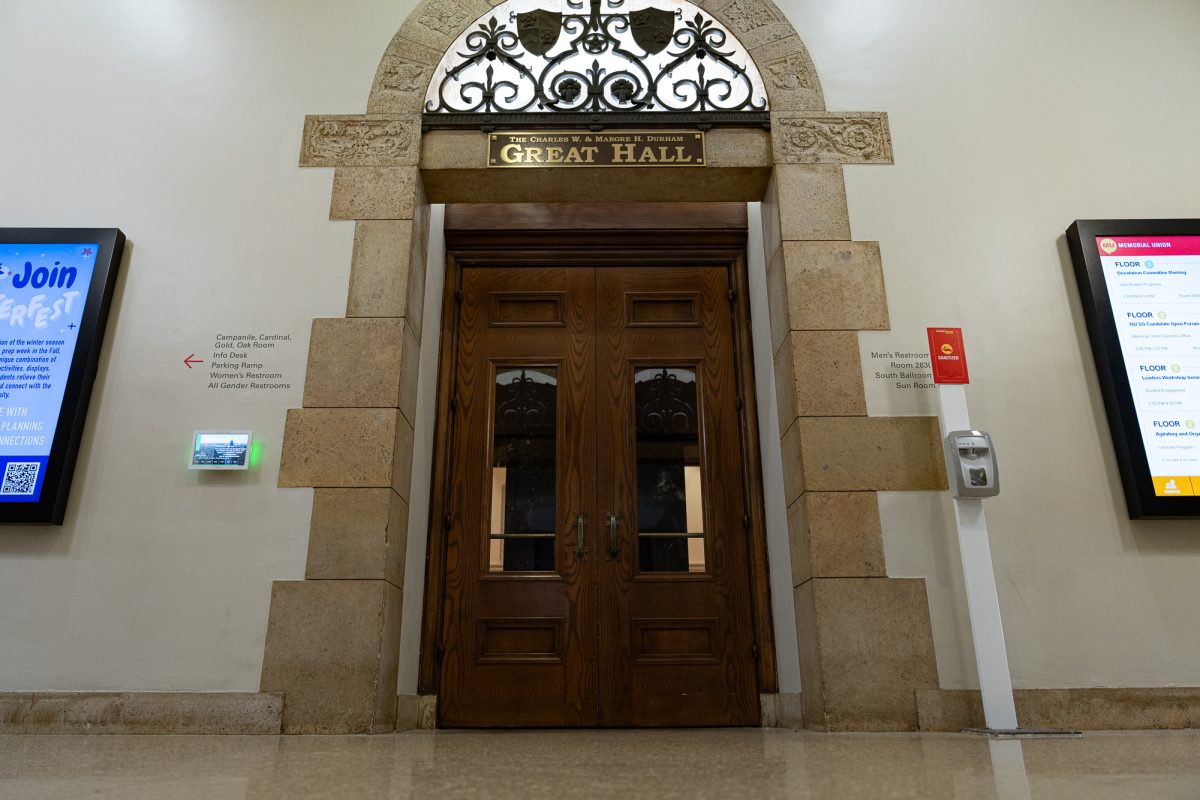COLUMN: Discovering new cultures a matter of using your ears
September 1, 2003
When I was young, I ate liver, heart and kidneys for dinner. My mom and dad ate cow tongue. My sisters loved blood clots. After dinner we listened to Shayla and Elvis Phuong.
Disgusted and confused yet? Many Americans would be.
Most international students and TAs learn English at an alarmingly fast rate, and students transfer out of their classes because “they can’t speak English.”
Why should they?
Can we really expect people from other countries to adopt our language, our music, our fashion and our culture as a whole? It’s no wonder the French think we are loud, noisy and obnoxious. When we travel to other countries, we expect people from other countries to speak English and be as fluent as we are.
“Why can’t they just speak English?”
They do, even though they shouldn’t have to. Many people in Europe are bilingual. They learn another language from the time they’re young and apply it when they’re older.
Europe has a smorgasbord of languages spoken in a single country — some countries don’t even have a national language. Depending on what part of Switzerland you are in, the locals can be speaking German, French or Italian. Many of them know three languages, and many of them speak English.
So maybe the United States is king, and everyone should speak English and love the culture we produce. But how does this endorse diversity? Are other countries going to think us less arrogant if we choose not to learn another language or try another cuisine?
Other countries do love our culture. We’re amusing, creative creatures in the U.S. — Levis cost three times as much as in other countries as they do here. They love pizza, “Friends” and Britney Spears. Most industrialized nations love our culture. We don’t love theirs.
The United States is supposed to be the melting pot of the world. People from other countries come here and are amazingly surprised at the diversity this country has to offer.
However, ask a good portion of its inhabitants and they’ve never taken a look at what another culture has to offer past the Panda Express in the mall or the French techno song that made the Billboard charts.
No, not everybody falls victim to the ethnocentricity of this nation. Some people think it’s OK if I say I eat pigeon or enjoy kidney and blood clots. It extends past food, but that is where it often begins. Those that may not want to try squid also think it’s a waste of time to read a movie or listen to German rock when you can’t even understand the words.
“How can you sing along?”
If it’s good music, you’ll feel the emotion beyond the words. You know what Manu Chau is saying by his tone. You can feel Rammstein from the guitars.
American music is diverse on its own, but other places have tons of fantastic music. Gigi D’Agostino, a French DJ who has been producing music for the past 20 years, is all but impossible to find in Ames beyond a lucky find at Best Buy.
English artists usually have no problem crossing the ocean and making it in the United States, but Asian, Eastern European and African music is rarely heard unless you are passing by an international student’s apartment or Boheme Bistro on a weekend.
I’m not saying go out and jump head first into sushi, Germany’s H-Blockx or drop your engineering class for a course in Sanskrit. But open your eyes, listen to something not American-made and prove the rest of the world’s perceptions wrong.






